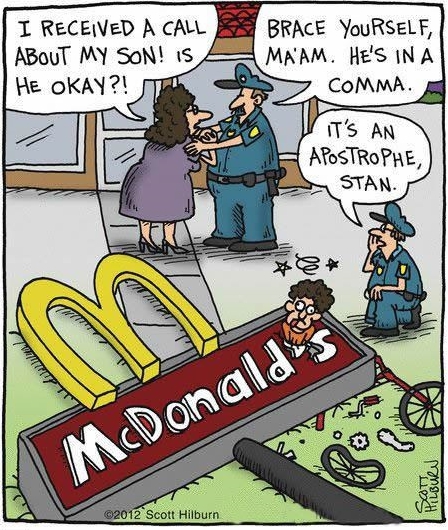
I wish someone had told me how unimportant spelling and grammar actually are
“I wish someone had told me” is a series of posts that feed into our inquisitive nature at CN&CO. Each week we hear from someone in our network about something interesting or surprising that’s recently happened or occurred to them – or lessons they’ve learnt. These blogs are a way to pay it forward and form part of CN&CO’s belief that the world can be a better place – and we all have a responsibility to make it so. This week’s post is by our back-office grammar stickler Colin Ford, who, it would appear, is not such a stickler after all…
Grammar Nazis are everywhere – strident warriors who never miss an opportunity to correct other people’s grammar, spelling or punctuation. And the more public, the better. *you’re *their *worst *nightmare *etc.
I am one of the lucky ones. As CN&CO’s word nerd, I get to edit a lot of the writing that passes through our doors. I get to fix things every day, quietly and gently. And so when I see a billboard or a Facebook post with an error in it, I can notice it and move on without jumping on my high horse or posting things that start with *. (Okay, sometimes I do, but only ironically, or if they really deserve it.)

The thing about grammar activism is that it discourages a lot of people from telling their stories. Some of the best writing I’ve read during the course of my work as a back-office grammar Nazi has been riddled with technical errors – typos, clumsy sentence construction, bad or non-existent punctuation and worse. But I’ve reached the end in tears, or with a glad heart, or knowing more about something than I knew before. And then I’ve tweaked it a bit to make it more readable, fixed the technical stuff and sent it back to the writer with a bit of feedback for next time. To me, that is what writing is all about.
So many times I hear people say, “I can’t write.” And every time – without exception – what the person really means is, “My spelling isn’t all that good”, or “I battle to form proper sentences.” My advice to them:
Don’t let the pernickety rules of language stop you from telling your story.
Everyone has a story to tell. Every. One. So what if you leave out an apostrophe, or start your story at the end? And who cares if you use one, long, excitable sentence to share every fact about your whole, entire life? The trick is to tell your story honestly, in your own voice. That’s where the magic comes from. The rest is just editing. And any monkey with a style guide and a dictionary can edit.






